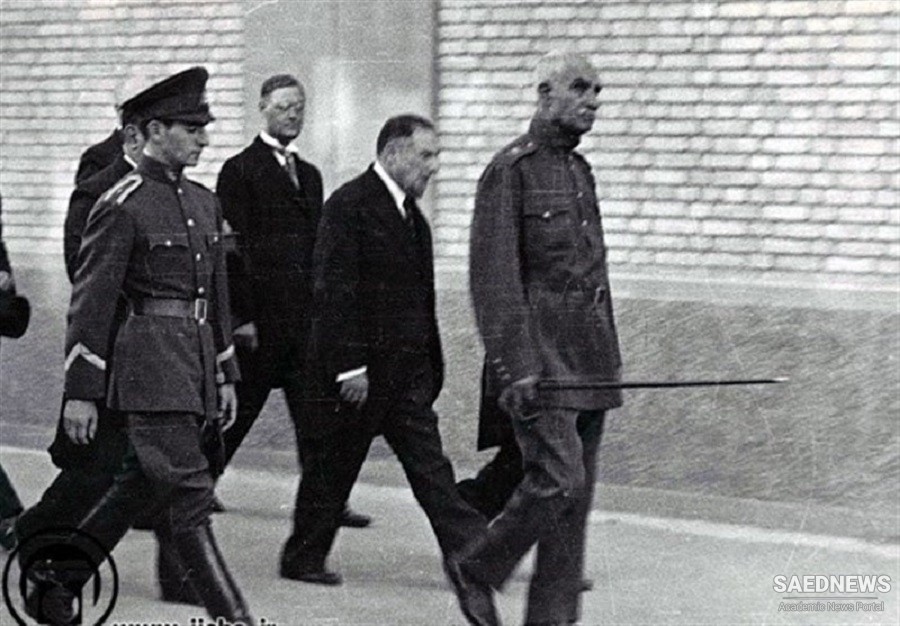Reza Khan, who had risen through the ranks, was self-educated – some claim semi-illiterate. He came from a military family that fled Russian advance into the Caucasus and received a fief in the fertile village of Alasht in the Sefid Rud region of Mazanderan. His relatives, including his father and grandfather, had served in the provincial regiment – the latter had been killed in the 1848 siege of Herat.
Reza Khan himself had enrolled as a teenager in the Cossack Brigade. Rumor had it that he had at one time or another served as a stable boy, either for the royal palace, the Farmanfarmas, the Dutch legation, or the American Presbyterian Mission. During the civil war and the subsequent upheavals, he made his mark as an up-and-coming officer nicknamed “Reza Khan Maxim.”
In later years when he built himself a palace in Mazanderan, he decorated the entryway with a large mosaic depicting a Maxim machine gun. He was multilingual: he spoke Alashti – a dialect of Mazanderani – with his neighbors; Persian with the outside world; pigeon Russian with the Tsarist Cossack officers; and variant of Turkish with his men.
In carrying out the coup, Reza Khan declared martial law, won over the local gendarmes, skirmished briefly with the city police, and assured Ahmad Shah that he had come to save him from the Bolsheviks. He also installed as premier Sayyed Ziya Tabatabai, a young journalist described by the British legation as “notorious for his Anglophilia.”
The previous premier, Sepahdar, who for months had failed either to convene a majles or form a cabinet, fled to the Turkish embassy. Before marching on Tehran, Reza Khan had given two promises to Ironside, the British general who had recently taken charge of the Cossacks and replaced Russian officers with Iranians. He had promised to facilitate the withdrawal of British troops and not to overthrow Ahmad Shah.
Unbeknownst to Curzon, Ironside considered the Anglo-Persian Agreement a lost cause, and was on the look-out for a suitable man on horseback to save the situation. Ironside had placed Reza Khan in charge of the Qazvin garrison and hurriedly promoted him general. Thus many 1920–21 sources still referred to Reza Khan as a colonel. Ironside also provided Reza Khan with ammunition and pay for his men – immediately after the coup the Cossacks received generous bonuses.
On the eve of his march on Tehran, Reza Khan assured a joint delegation from the royal palace and the British legation that he was pro-shah and pro-British and that once the latter had withdrawn from the country he would organize a force capable of dealing with the Bolsheviks. Not surprisingly, many Iranians still consider the coup a “British plot.”


 Mirza Kuchak Khan and the Jangal Movement
Mirza Kuchak Khan and the Jangal Movement














































